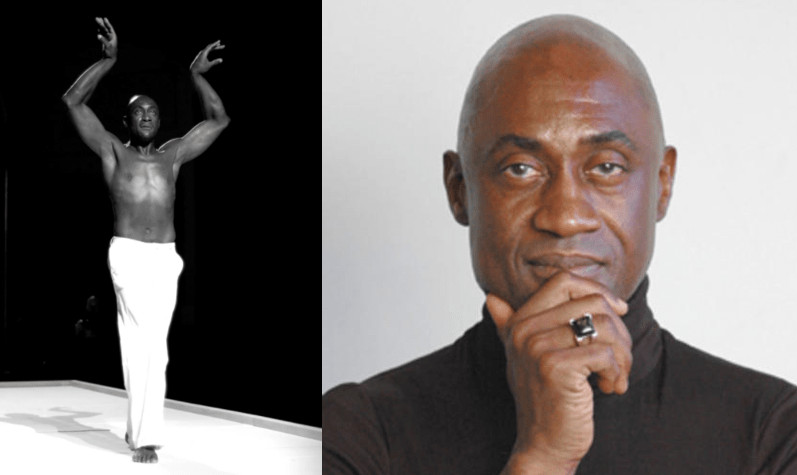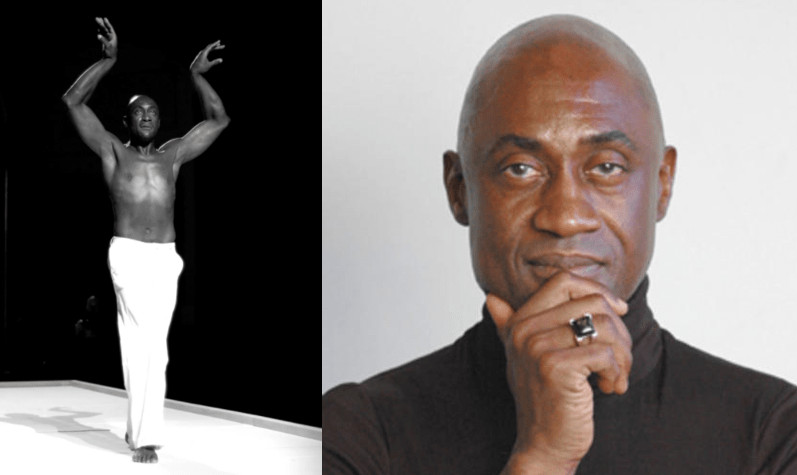The world of dance mourns the loss of Ismael Ivo, a Brazilian dancer and choreographer whose global impact often overshadowed his recognition in his own country. Ivo’s recent passing from COVID-19 complications serves as a poignant reminder of the fragility of life and the immense contributions of artists, particularly those from marginalized communities. This article delves into the remarkable journey of Ismael Ivo, exploring his humble beginnings in Brazil, his rise to international acclaim, and the enduring legacy he leaves behind for dancers in Brazil and across the globe.
 Ismael Ivo, a celebrated Brazilian dancer and choreographer, in a dynamic pose, highlighting his artistic expression and physical prowess.
Ismael Ivo, a celebrated Brazilian dancer and choreographer, in a dynamic pose, highlighting his artistic expression and physical prowess.
Ismael Ivo’s story is not just one of personal triumph; it reflects the broader narrative of Black Brazilian artists who often find greater appreciation and opportunities outside of Brazil. Despite facing systemic racism and cultural biases within his homeland, Ivo persevered, achieving international stardom and leaving an indelible mark on contemporary dance. His experiences resonate with many Afro-Brazilians in the arts, highlighting the ongoing struggle for recognition and equity within Brazil’s cultural landscape.
Ivo’s journey began in Vila Ema, a humble neighborhood in São Paulo’s East Zone. Raised by a single mother who worked as a maid, his early life was marked by the challenges faced by many Black Brazilians in a society grappling with deep-seated inequalities. However, his mother’s encouragement ignited his passion for dance, setting him on a path that would eventually lead to international stages and accolades. He honed his skills through scholarships at contemporary dance schools and joined the dancers corps of the Teatro de Dança Galpão in São Paulo, demonstrating early promise and dedication.
A pivotal moment in Ivo’s early career came when he caught the attention of renowned choreographer Klauss Vianna. Under Vianna’s mentorship, Ivo joined the experimental dance group of the Teatro Municipal, further refining his artistry and expanding his horizons. This period of growth within Brazil’s dance scene laid the foundation for his international breakthrough.
 Ismael Ivo performing with intense emotion and powerful movement, captured during a stage performance showcasing his solo dance skills.
Ismael Ivo performing with intense emotion and powerful movement, captured during a stage performance showcasing his solo dance skills.
The trajectory of Ismael Ivo’s career took a dramatic turn in 1983 when the legendary African-American dancer and choreographer Alvin Ailey witnessed Ivo perform “O Rito do Corpo em Lua” at the Oficinas Nacionais de Dança Contemporânea in Salvador, Bahia. Ailey, vacationing in Brazil, was so captivated by Ivo’s performance that he extended an invitation for the young dancer to study in New York. This chance encounter proved to be a transformative “magic” moment, as Ivo himself described it, propelling him onto the global stage.
Accepting Ailey’s invitation, Ivo traveled to New York and immersed himself in studies at an American dance school. This experience opened doors to performances at the prestigious La MaMa Experimental Theatre Club, founded by African-American theater director Ellen Stewart. These early performances in New York marked the beginning of Ivo’s international career, setting the stage for decades of groundbreaking work and collaborations across Europe and beyond.
Despite his international success, the question remains: why was Ismael Ivo not a household name in Brazil? This lack of recognition speaks volumes about the systemic challenges faced by Black Brazilian artists within their own country. As the original article poignantly points out, countless Afro-Brazilians have had to seek opportunities abroad to achieve their artistic goals, a situation that, while slowly evolving, still persists today. The example of ballerina Ingrid Silva, who found fame in the United States after facing barriers in Brazil, further underscores this point. While acknowledging the historical and ongoing racism in the United States, the article emphasizes that, in many ways, the US has historically offered more avenues for success to Black artists than Brazil has.
Ismael Ivo’s international career flourished, particularly in Europe. In 1984, he co-founded the ImPulsTanz Festival in Vienna, which grew into one of Europe’s most prestigious contemporary dance festivals. His leadership in establishing this festival solidified his position as a major figure in the global dance community. Later, Ivo served as director of the Venice Biennale and became the first Black foreigner to direct the German National Theater in Weimar, further demonstrating his exceptional talent and leadership on an international scale.
 A portrait of Ismael Ivo, capturing his thoughtful expression and artistic demeanor, representing his significant role in contemporary dance.
A portrait of Ismael Ivo, capturing his thoughtful expression and artistic demeanor, representing his significant role in contemporary dance.
Returning to Brazil in 2017 marked a significant chapter in Ivo’s life as he assumed the direction of the Balé da Cidade de São Paulo. This appointment was historic, making him the first Black man to lead one of Brazil’s most important dance companies. His tenure at Balé da Cidade was marked by innovative productions, including “Corpo Cidade,” which explored the relationship between the city of São Paulo and its inhabitants through dance, making performances accessible to a wider audience with affordable ticket prices.
However, Ivo’s time at Balé da Cidade was cut short and marred by controversy. Accusations of moral harassment led to his dismissal, allegations he vehemently denied and for which he was later acquitted. This difficult period highlights the persistent challenges and prejudices that even successful Black artists can face within Brazilian institutions.
Despite these challenges, Ismael Ivo’s legacy remains profound. His pioneering work and international acclaim paved the way for future generations of Brazilian dancers, especially Black dancers, inspiring them to pursue their dreams on both national and international stages. His story echoes that of Ingrid Silva and many others who are breaking barriers and demanding greater representation in the dance world.
 Ismael Ivo in a reflective pose, possibly during an interview, showcasing his insightful perspective on dance and his career trajectory.
Ismael Ivo in a reflective pose, possibly during an interview, showcasing his insightful perspective on dance and his career trajectory.
Ismael Ivo’s passing is a significant loss to the dance community and to Brazil. São Paulo Governor João Dória’s announcement of the creation of the SP Escola de Dança Ismael Ivo (Ismael Ivo School of Dance) is a fitting tribute to his memory, promising to nurture future talent in choreography and performance. Ivo’s words, “Culture is an element that transforms life,” encapsulate his belief in the power of art to shape society and individual lives. His life’s work serves as an enduring testament to this belief, urging Brazil and the world to recognize and celebrate the invaluable contributions of all artists, especially those who have historically been marginalized. Remembering Ismael Ivo means not only honoring a dance legend but also continuing the fight for a more equitable and inclusive arts landscape where talent from all backgrounds can flourish.

